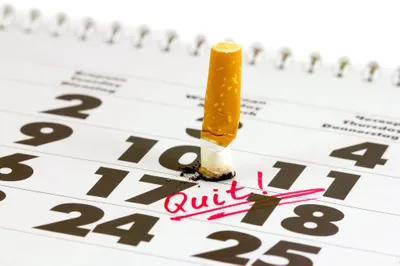Your heart is essentially your engine. And as you know, a car without a good engine is really not that efficient, even when the other parts are working fine.
Making adjustments to your diet and lifestyle can go a long way in ensuring your engine runs smoothly into your later years. In honor of World Heart Day on September 29, 2016 here are seven tips to love your heart so it will love you back…
1. Reduce Salt
There is salt and sodium in most things we eat, but Americans consume way too much of it on average (you should take in less than 1,500-milligrams per day for best results, according to WebMD). Most adults take in 6-grams or more daily.
Salt retains fluids, which increase your blood pressure, adds the source. Higher blood pressure means it’s tougher on your heart to pump easily. This is a problem especially if you’re already prone to high blood pressure.
2. Butt Out
Smoking is still common, despite the known dangers, one of them being a higher risk of cardiovascular diseases. “Smoking is one of the top controllable risk factors for heart disease,” notes HealthLine.com.
The source notes that quitting smoking will benefit all parts of your body, not just your heart. If you think you can’t beat the habit, there are medical programs you can look into to help you quit and give your heart a needed break.
3. Laugh More
Round up some of your funnier friends for a night out, and have a good belly laugh. Research shows that laughing out loud (not just typing LOL) is actually good for your heart and can help guard against a heart attack, notes the University of Maryland Medical Center.
A study showed that those who laugh less are more likely to develop heart disease. Those with heart disease are 40-percent less likely to LOL in real life routinely, to be more exact. The connection is that mental stress (presumably from not laughing enough) is related to inflammation that can lead to fatty buildups in coronary arteries, explains the university.
4. Walk it Off
Getting exercise is essential in many ways, as well as for your mental health. And it doesn’t take a gym membership to reap the benefits for your heart, notes the American Heart Association (AHA).
To lower your risk of heart disease, you can briskly walk 2.5-hours per week, or step it up for some higher-impact aerobics for 75-minutes per week, explains the ASA. For additional health benefits for adults, add 2-days per week of muscle strengthening exercises.
5. Drink to Heart Health
That’s right, a bit of alcohol is actually good for your heart! HealthLine.com notes that “moderate” consumption of alcohol helps raise levels of “good” cholesterol, and it can also help reduce the chance of blood clots and artery damage.
The source notes that red wine is the most effective beverage for getting heart benefits. “That doesn’t mean you should guzzle it at every meal,” reminds HealthLine. Good news for beer drinkers is that it has also been shown to have health benefits (some sources say it’s even more effective than red wine).
6. Eat Chocolate
Just when you thought the good news couldn’t get any better, here’s some more: chocolate is good for your heart too (wine and chocolates, anyone?) This doesn’t apply to all off-the-shelf candy bars; the benefits are mainly isolated to dark chocolate for the antioxidants and “flavanols” that are heart-friendly.
Many chocolate products from stores are highly processed and lose some of these flavanols, adds the source. “The good news is that most major chocolate manufacturers are looking for ways to keep the flavanols in their processed chocolates,” it explains. However, if in doubt, stick with the darker stuff.
7. Find Love
Having an active life in the bedroom is actually more than just fun; it’s good for your heart, according to WebMD. It raises your heart rate, and it also helps keep hormone levels in balance, it adds.
When estrogen or testosterone gets too low, it can lead to complications such as heart disease. The source cites a study that shows that men who got intimate with a partner at least twice a week were only half as likely to die of heart disease than men who didn’t get any action between the sheets.










